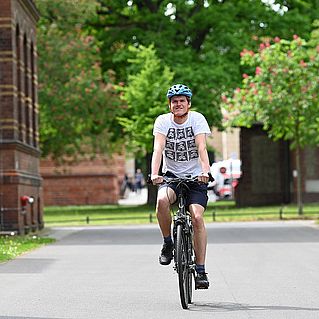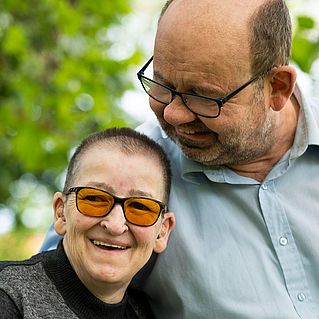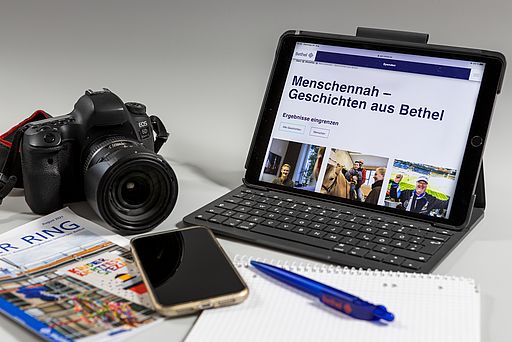It smells of hay and fresh manure. A fine dust is in the air and tickles your nose. Horses snort, hooves clatter and a tomcat struts through the stables of the therapeutic riding centre in Bethel. People with disabilities, young people with psychosomatic illnesses and girls and boys from the Bethel children's and youth hospice come for therapy. Just like Jonas. The eleven-year-old, who normally sits in a wheelchair, leans on his father and trots around the hall on Paul's back. Paul is a well-trained horse. Nothing upsets him. And this calm is good for Jonas.
Jonas has only just overcome a life-threatening crisis. "We came straight from hospital to the children's hospice," says Moritz Thevissen. He has known the Bethel facility for many years. Families with terminally ill children can come to rest for a few weeks in the centre, which is financed by donations. The children receive medical care, nursing and educational support. Their parents can hand over responsibility for once, sleep in or do something. Otherwise, every day is a challenge for the families. It's not just the care, which they often take on themselves, that frays their nerves. It's also the anxiety.











